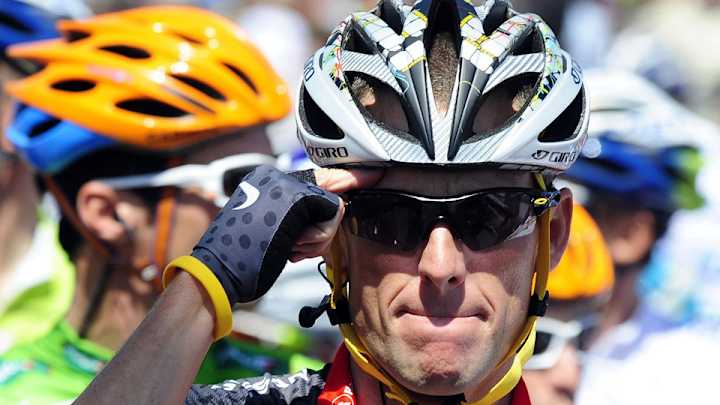Lance Armstrong on cheating in the '90s: 'I would probably do it again'

Lance Armstrong said in an interview with the BBC that he'd "change the man, not the decision" when asked if he would use performance-enhancing drugs again.
Armstrong, 43, was stripped of his record seven Tour de France titles and banned for life by the United States Anti-Doping Agency in August 2012. The BBC interview was his first since confessing to Oprah Winfrey in January 2013 that he used performance-enhancing drugs during his career.
"If I was racing in 2015, no, I wouldn't do it again because I don't think you have to," he said.
"If you take me back to 1995, when doping was completely pervasive, I would probably do it again."
After returning to cycling in 1996 following a bout with cancer, Armstrong became one of the most dominant cyclists in the sport's history. He faced doping allegations for much of his career until the USADA issued a comprehensive 1,200-page report in October 2012.
Armstrong was asked if he would make the same choice to cheat that he made in 1995.
He said: "When I made the decision, when my team made that decision, when the whole peloton made that decision, it was a bad decision and an imperfect time.
"But it happened. And I know what happened because of that. I know what happened to the sport, I saw its growth."
• Greg LeMond rejects leniency for Lance Armstrong
Explaining that growth, Armstrong cited sales at Trek Bicycles, his bike supplier, that rose from $100 million to $1 billion and fundraising efforts at his charity foundation, Livestrong, went from "raising no money to raising $500 million, serving three million people."
Armstrong did also admit to "unacceptable and inexcusable" behavior toward other people during his career.
"I would want to change the man that did those things, maybe not the decision, but the way he acted," he continued.
"The way he treated people, the way he couldn't stop fighting. It was unacceptable, inexcusable."
BBC News will air a 30-minute documentary, Lance Armstrong: The Road Ahead, on Jan. 29. An abridged transcript of Armstrong's interview is also available on the BBC website.
- Mike Fiammetta
